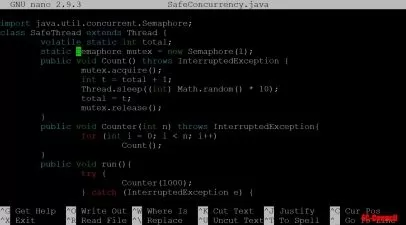Master Python Hacking: 15+ Projects from Beginner to Expert
Nazar Diachok
14:47:28
Description
Write 15+ tools to learn malware development & python programming & ethical hacking | No prior knowledge required
What You'll Learn?
- Malware development with python 3
- Python 3 for ethical hacking and penetration test
- Create advanced malwares with Pyhton 3
- Advanced techniques for security bypass
- Create custom tools for ethical hacking
- 100+ video materials
- presentation for each malware and tool
- 13+ hours of hands on experience
- 15+ tools and malwares creation
- basik networking
- Botnets creation
- Internet worm creation
- advanced tools creation
- advanced malware development
- python 3 for hacking
- penetration test
- ethical hacking
- hacking
- python programming
- Network & Security
- Password cracking
- advanced malicious codes creation
- malware development
Who is this for?
What You Need to Know?
More details
DescriptionThis course, "Python3 for Ethical Hacking and Advanced Malware Development from Scratch," is designed for beginner, professionals, penetration testers, ethical hackers in the cybersecurity field who wish to delve into the world of ethical hacking and advanced malware development. Since no prior knowledge is required, this course serves as an ideal starting point for beginners while offering substantial depth for those with some experience in the field.
Participants embark on a comprehensive journey, beginning with the fundamentals of Python3, a programming language known for its simplicity and versatility in cybersecurity. As the course progresses, students transition from basic programming concepts to creating complex hacking programs and developing advanced malware.
Throughout the course, students create over 15 practical hacking programs, each designed to enhance their understanding of various cybersecurity techniques and methodologies. These programs cover a wide range of hacking scenarios, including network penetration testing, vulnerability assessment, and data exfiltration. By actively developing these tools, students gain hands-on experience in identifying, exploiting, and mitigating security vulnerabilities.
In addition to the various hacking techniques, the course places significant emphasis on the ethical dimensions and appropriate use of hacking skills. Students learn about the importance of ethical hacking, the legal frameworks, and best practices to ensure that their activities positively contribute to the cybersecurity community.
Advanced malware development is another cornerstone of this course. Participants study the intricacies of developing, deploying, and analyzing malware. They learn to create stealthy and effective malicious software while understanding the defensive measures necessary to counteract such threats.
By the end of this course, students possess a robust toolkit of Python-based hacking programs and a strong foundation in malware development, equipping them with the skills needed to succeed in the dynamic field of cybersecurity.
Who this course is for:
- Aspiring Ethical Hackers: Individuals who are new to cybersecurity and want to learn how to use Python for ethical hacking and penetration testing. This course is ideal for those starting their journey in cybersecurity and ethical hacking.
- Python Programmers with Interest in Security: Developers who are proficient in Python and want to expand their skill set by learning how to apply Python to various hacking techniques, tools, and projects.
- Cybersecurity Students: Students pursuing cybersecurity degrees or certifications who are looking to supplement their education with practical, hands-on projects that demonstrate how Python can be used in real-world hacking scenarios.
- IT Professionals and Network Administrators: IT professionals, system administrators, or network engineers who want to enhance their security skills by learning how to identify, exploit, and protect against vulnerabilities using Python.
- Hobbyists and Self-Learners: Individuals who have a passion for cybersecurity, ethical hacking, or programming and are eager to learn through guided projects, even without formal training or a professional background in the field.
- Cybersecurity Enthusiasts Transitioning to Python: Those already familiar with other programming languages or security tools, looking to transition into Python for more powerful and flexible hacking solutions.
This course, "Python3 for Ethical Hacking and Advanced Malware Development from Scratch," is designed for beginner, professionals, penetration testers, ethical hackers in the cybersecurity field who wish to delve into the world of ethical hacking and advanced malware development. Since no prior knowledge is required, this course serves as an ideal starting point for beginners while offering substantial depth for those with some experience in the field.
Participants embark on a comprehensive journey, beginning with the fundamentals of Python3, a programming language known for its simplicity and versatility in cybersecurity. As the course progresses, students transition from basic programming concepts to creating complex hacking programs and developing advanced malware.
Throughout the course, students create over 15 practical hacking programs, each designed to enhance their understanding of various cybersecurity techniques and methodologies. These programs cover a wide range of hacking scenarios, including network penetration testing, vulnerability assessment, and data exfiltration. By actively developing these tools, students gain hands-on experience in identifying, exploiting, and mitigating security vulnerabilities.
In addition to the various hacking techniques, the course places significant emphasis on the ethical dimensions and appropriate use of hacking skills. Students learn about the importance of ethical hacking, the legal frameworks, and best practices to ensure that their activities positively contribute to the cybersecurity community.
Advanced malware development is another cornerstone of this course. Participants study the intricacies of developing, deploying, and analyzing malware. They learn to create stealthy and effective malicious software while understanding the defensive measures necessary to counteract such threats.
By the end of this course, students possess a robust toolkit of Python-based hacking programs and a strong foundation in malware development, equipping them with the skills needed to succeed in the dynamic field of cybersecurity.
Who this course is for:
- Aspiring Ethical Hackers: Individuals who are new to cybersecurity and want to learn how to use Python for ethical hacking and penetration testing. This course is ideal for those starting their journey in cybersecurity and ethical hacking.
- Python Programmers with Interest in Security: Developers who are proficient in Python and want to expand their skill set by learning how to apply Python to various hacking techniques, tools, and projects.
- Cybersecurity Students: Students pursuing cybersecurity degrees or certifications who are looking to supplement their education with practical, hands-on projects that demonstrate how Python can be used in real-world hacking scenarios.
- IT Professionals and Network Administrators: IT professionals, system administrators, or network engineers who want to enhance their security skills by learning how to identify, exploit, and protect against vulnerabilities using Python.
- Hobbyists and Self-Learners: Individuals who have a passion for cybersecurity, ethical hacking, or programming and are eager to learn through guided projects, even without formal training or a professional background in the field.
- Cybersecurity Enthusiasts Transitioning to Python: Those already familiar with other programming languages or security tools, looking to transition into Python for more powerful and flexible hacking solutions.
User Reviews
Rating
Nazar Diachok
Instructor's Courses
Udemy
View courses Udemy- language english
- Training sessions 102
- duration 14:47:28
- Release Date 2024/10/03










